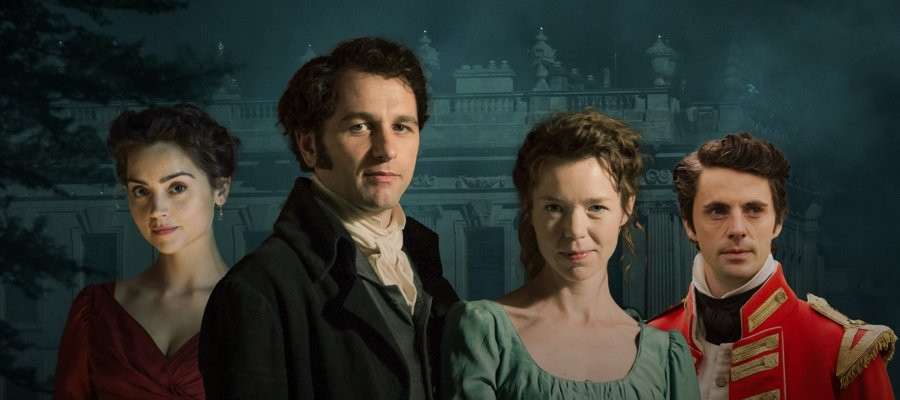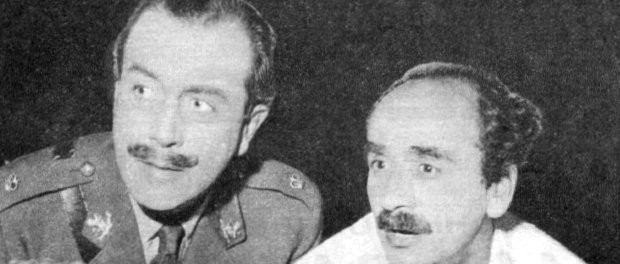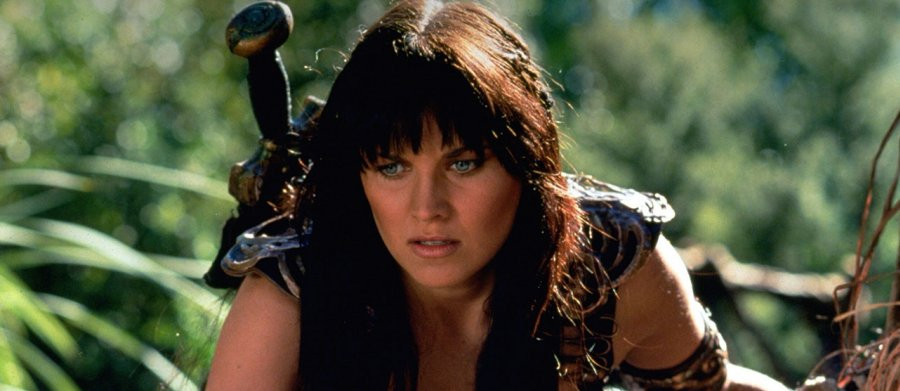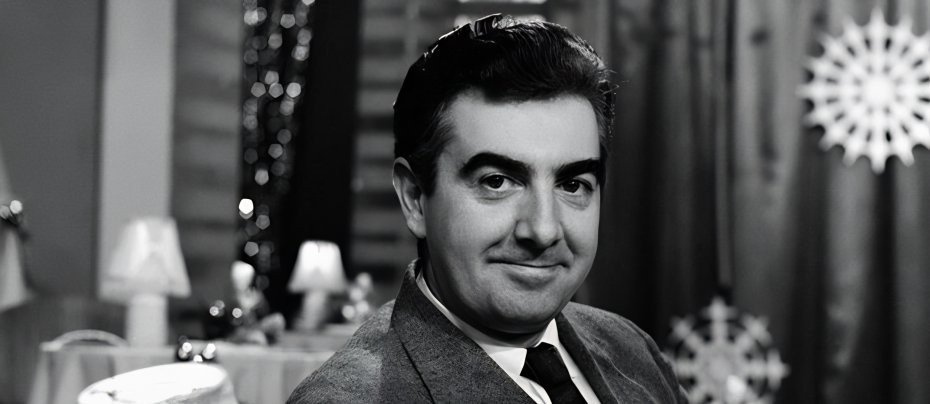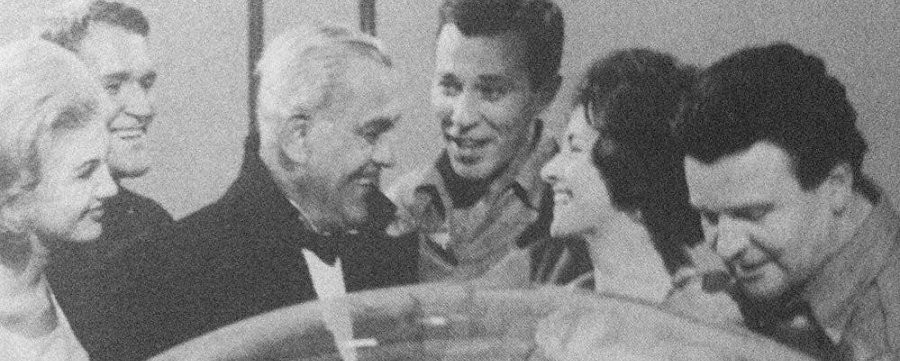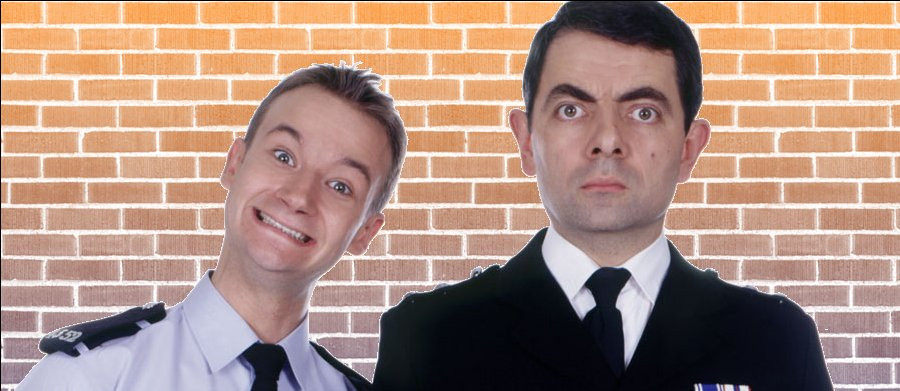
Next of Kin
1995 - United KingdomBy 1995, Penelope Keith had been a fixture on television screens, most notably in sitcoms. Her Midas touch when it came to comedy was still in full flow when she was paired with William Gaunt, another long-established sitcom lead, in a BBC show with a scenario that in lesser hands would have failed, but instead flourished for three solid years.
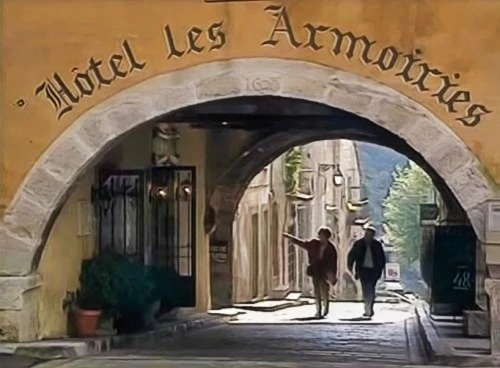
Next of Kin told the story of Maggie and Andrew Prentice. We meet the pair in idyllic surroundings of a streetside café in France. Supping on their wine in a peaceful village, their life has turned out exactly as they wished. Retirement for their golden years was imminent as they have found the perfect place to live, while back in the UK their property has received its asking price. Their latter years were set to be perfect, except some shocking news awaits them when they return home to progress the property sale.
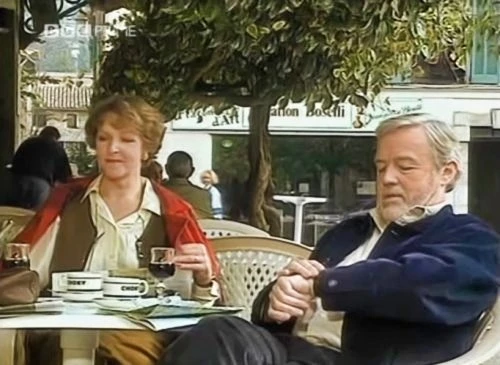
When arriving back they are met not only by their hired housekeeper Liz (Tracie Bennett), but also a policeman. While they have been away, their only son and his wife have been killed in a traffic accident, leaving their three grandchildren orphaned. It’s a revelation that would knock most people for six, but in the case of the Prentices, especially Maggie, the news is more of an inconvenience than anything. Not only did Maggie not have a good relationship with her son, Graham, or indeed his wife (to whom Maggie refers affectionately as Bootface), but while delighting in their plans in France she had decided that they would never see them again and never even tell them that they had emigrated.
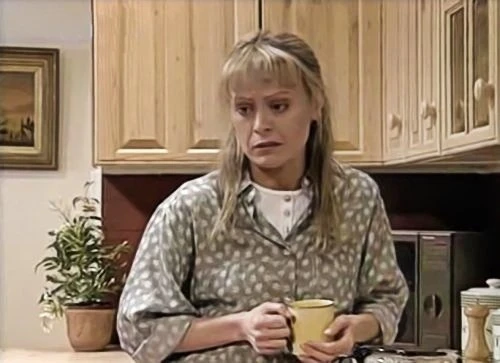
The news of Graham and Bootface’s demise initially doesn’t floor Andrew and Maggie. The funeral took place while they were away and an aunt of Bootface identified the bodies and described Graham as estranged from his parents. Maggie admits that not only was there no affection between her and her son, but they didn’t even like each other. He felt he deserved a better mother and she admitted that motherhood was not for her.
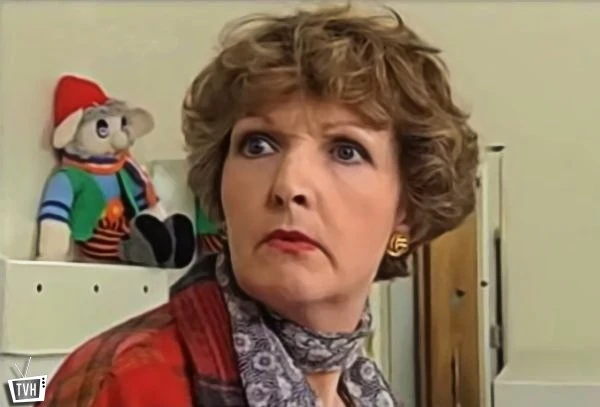
The real shock kicks in when Andrew returns from visiting the coroner’s office to tell Maggie that they are now responsible for the upbringing of their three grandchildren. Maggie is horrified, pleading that an agency or fostering would be a far better option. Andrew, the more pragmatic and sympathetic of the pair concedes that there is no other option…they are now responsible as the children’s next of kin.
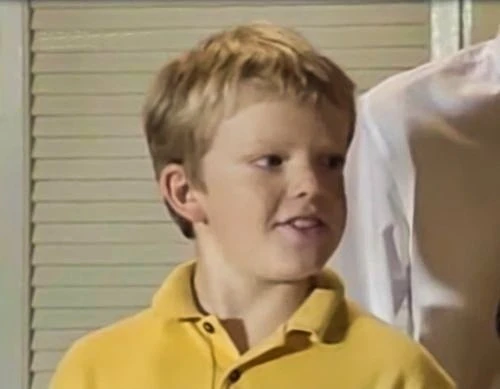
When the children arrive the road ahead is clearly destined to be rocky. The youngest is Jake (Jamie Lucraft). While he carries less emotional baggage as a seven year old, he does come with baggage of a different kind – a wide menagerie of pets, most notably hamsters and rabbits. The middle child is 11-year-old Philip (Matthew Clarke), struggling to deal with his parents’ demise and playing up at school as a result. Then finally Maggie’s biggest challenge, Georgia (Ann Gosling). Georgia comes with teenage attitude and since her tastes and beliefs are polar opposite to those of Maggie, she does everything in her power to butt heads with her grandparents.
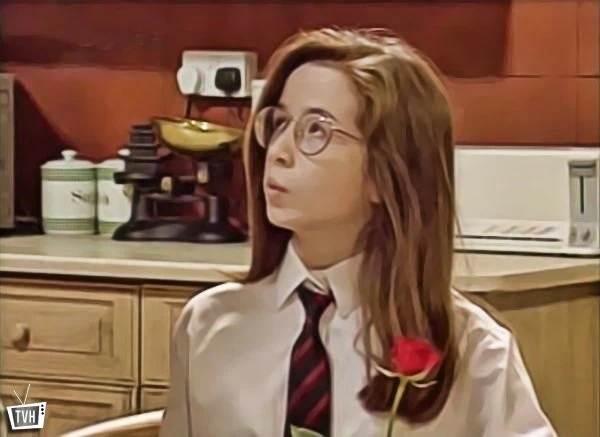
The challenge of Next of Kin is to make enough comedy from a very difficult subject and to make the characters believable but likeable enough to keep the viewer interested. All of the kids come with problems, particularly the older two, as one would expect from children suffering such a trauma. Philip is guilty of starting fights at school on a regular basis simply to give vent to his anger, something which Georgia has no problem doing. She happily tries to throw her grandparents under the bus when in the company of the social worker, Ant (Jeremy Swift), suggesting all kinds of cruelty and neglect in protest at the upheaval they have experienced.
Maggie herself is horrified by the direction her life has taken. She simply doesn’t want the life she now has…she was bad at parenting the first time around and initially has no interest in taking a second shot at being a success. With Andrew trying his hardest to keep calm and pacify all around him, it’s actually the social worker who offers the most comfort when he acknowledges that the Prentices have been trapped into a life they never anticipated.
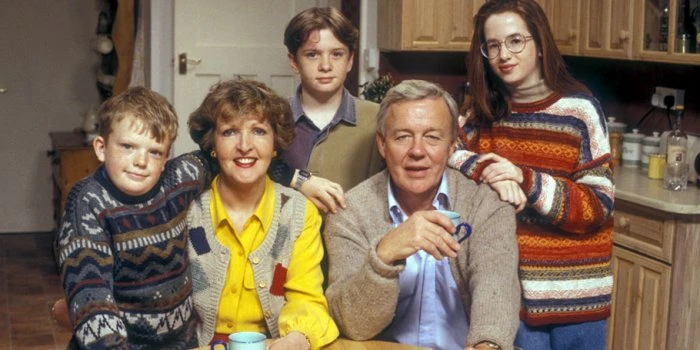
Throughout the three series, Andrew and Maggie try to navigate the perils of raising two children. By the end of the first series they decide (or more accurately, Andrew decides and Maggie reluctantly accepts) that to give the children security, they should legally adopt them. The children themselves are nonplussed at the option, but as the next two series progress they become more accepting, starting with Jake and working through Philip until even Georgia can exercise some level of tolerance.
The character that develops the most is of course Maggie herself. She never becomes fully comfortable with her situation, insisting the children call her Maggie, not Gran, and even at one point leaving home when it appears that the children see Andrew as the go-to parent. But by the time the series ended in its third year, Maggie has changed. She vehemently chastises parents of a child who has been bullying Philip, horrified by their hands-off approach to raising their son which reminds her of her own parental failures. By the last episode she has changed enough that she receives a Mother’s Day card from Philip, a touching way for the series to end.

In less experienced hands, Next of Kin could easily have failed. The children are difficult, but given the situation they are in, their acting out is understandable. But Maggie’s utter contempt for her deceased son and her insistence that her new life is not for her could easily have made her just too cold a character to hold an audience. Some nicely balanced writing from Jan Etherington and Gavin Petrie, along with Keith’s skills and Gaunt’s gentleness ensured that the programme did work. For that reason it’s rather sad that it ended after three series, but given that it was the final time either of these long established sitcom giants took starring roles in television comedy, it’s a show worthy of another look.
Review by Brian Slade
Seen this show? How do you rate it?
Seen this show? How do you rate it?
Published on December 14th, 2021. Written by Brian Slade for Television Heaven.



